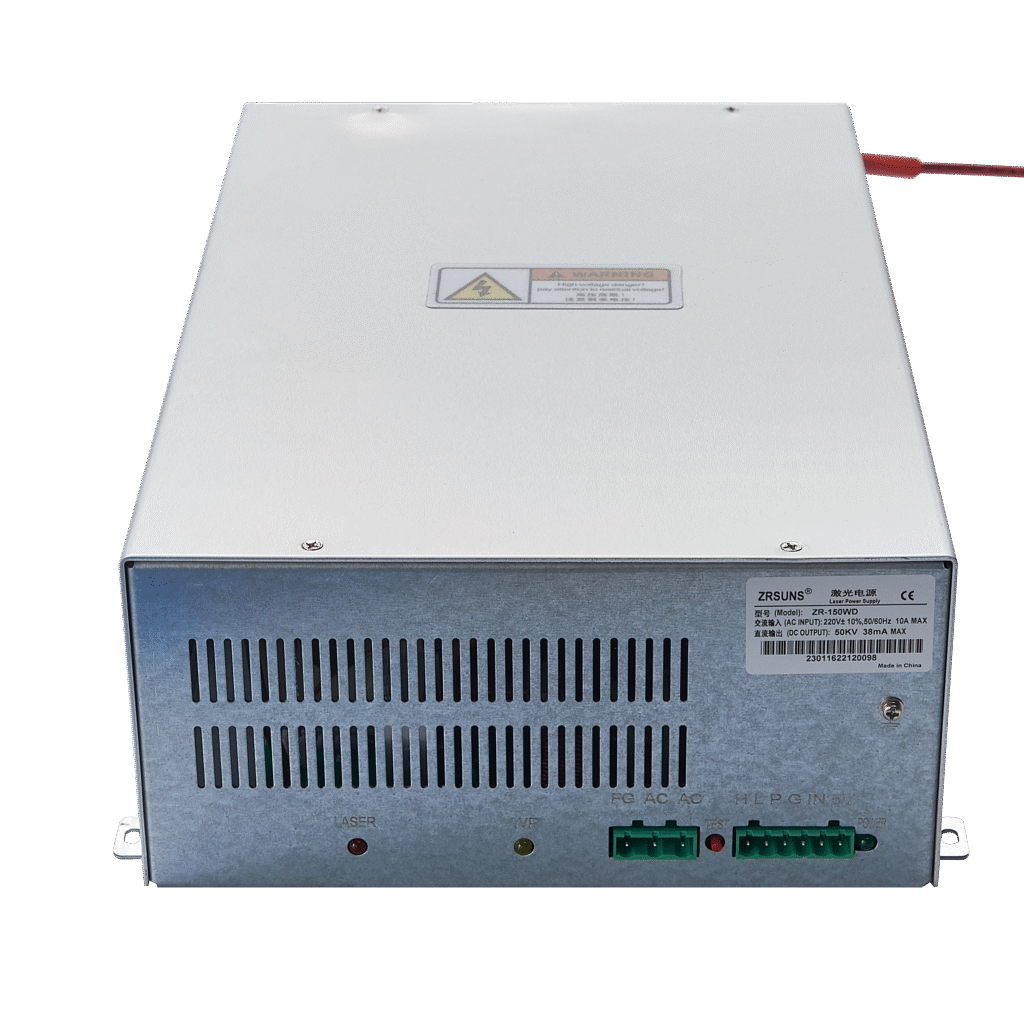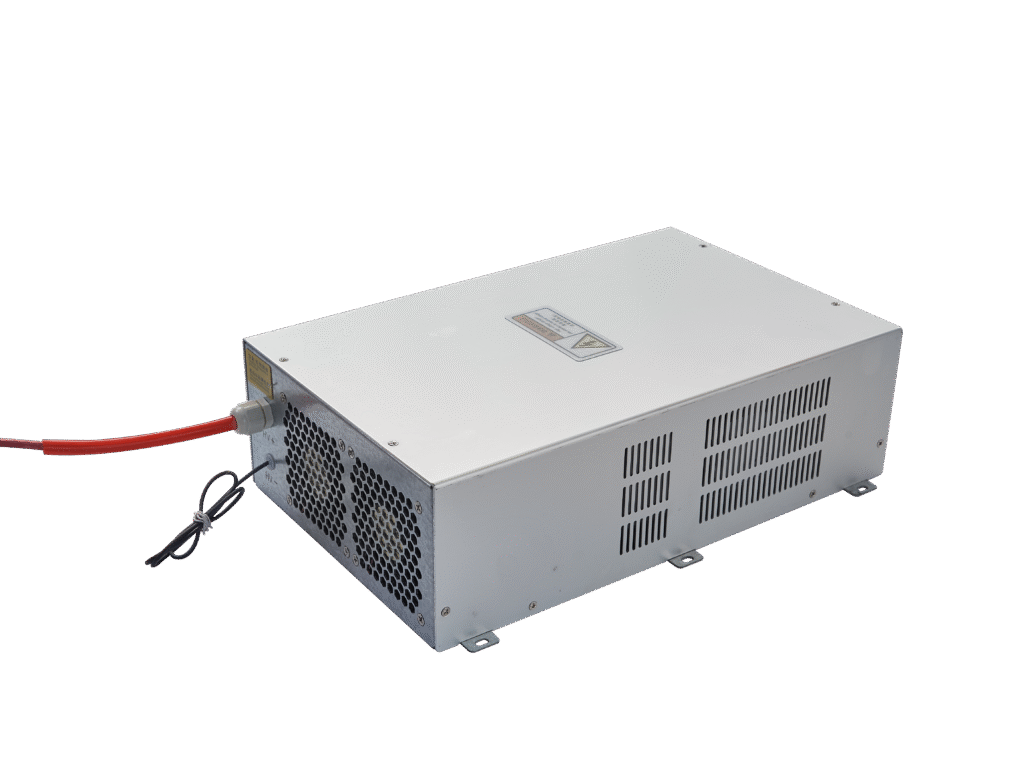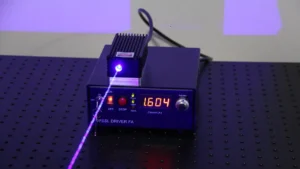When it comes to operating laser equipment effectively, a reliable power supply for the laser is crucial. The power supply ensures that laser tubes receive the correct voltage and power needed to function optimally. Common characteristics of laser power supplies include efficiency, response speed, and maximum input and output specifications. Whether you are a professional in the laser industry or someone interested in laser applications, understanding the options and key factors related to power supply for laser systems can help you make the best choice for your needs.
Introduction to Laser Systems
Laser systems are sophisticated assemblies that harness the power of focused light for a wide range of applications, from industrial manufacturing to scientific research and medical treatments. At the heart of every laser system are several key components: the laser tube, optical elements, control electronics, and, crucially, the power supply. The power supply acts as the backbone of the system, delivering the precise voltage and current required for the laser tube to generate a stable and efficient laser beam. Without a reliable power supply, even the most advanced laser tubes cannot perform to their full potential. Understanding the interplay between these components is essential for anyone interested in optimizing the performance and longevity of their laser equipment.
Understanding Power Supplies for Laser Systems: Power Supply for Laser and Laser Tubes
Power supplies are vital components that provide the necessary electrical energy to laser tubes. These devices convert input voltage into a controlled output voltage and current that laser tubes require to generate laser beams. The efficiency and stability of the power supply directly affect the performance and lifespan of the laser equipment. Forced air cooling is commonly utilized in laser power supply units to maintain operational temperatures.
Laser power supplies come in a broad range of categories, each designed to support different types of laser tubes and applications. For instance, some power supplies are tailored for CO2 laser tubes, while others suit fiber lasers or diode lasers. Ensuring compatibility between the power supply and laser tube is essential to avoid false operation and to maintain a safe working environment.
Types of Power Supplies for Laser Systems
When selecting a power supply for your laser system, it’s important to recognize that not all power supplies are created equal. There are several types designed to meet the diverse needs of different laser tubes and applications. DC power supplies are commonly used for CO2 laser tubes, providing steady and reliable output. Switching power supplies offer high efficiency and compact size, making them ideal for environments where space and energy savings are priorities. Linear power supplies, while larger and less efficient, are valued for their low noise and precise voltage control, which can be critical in sensitive applications. Additionally, cooling methods vary: water-cooled power supplies are preferred for high-power lasers to manage heat, while air-cooled options suit lower-power setups. High efficiency is an important feature of laser power supply units, with many units achieving greater than 90% efficiency. By understanding the strengths and limitations of each type, users can make informed choices that align with their specific application, whether it’s for industrial cutting, engraving, or laboratory research.
Key Features to Consider When Choosing a Power Supply for a Laser: Voltage, Efficiency, and Support
When selecting a power supply for laser systems, several factors should be taken into account to ensure optimal performance and safety:
- Voltage and Power Ratings: The power supply must deliver the correct input voltage and input power that match the specifications of the laser tubes. Using a power supply with improper input voltage or power can damage the laser or reduce its efficiency.
- Efficiency: High-efficiency power supplies minimize energy loss and reduce heat generation, which is beneficial for both the environment and operational costs.
- Support and Warranty: Opt for products that come with reliable customer support and warranty services. This ensures assistance is available if you encounter any issues during the use of the power supply.
- Weight and Size: Depending on your application, the weight and form factor of the power supply may be important, especially if portability or space-saving is a priority.
- Price and Stock Availability: Evaluate the price against the features and quality of the power supply. Additionally, check stock availability to avoid delays in your project timeline.
Applications and Use Cases of Power Supply for Lasers in Various Industries
Power supply for laser systems is used across various industries and applications. From industrial manufacturing to medical devices, the choice of power supply impacts the efficiency and reliability of laser systems. For example, in cutting and engraving applications, stable power supplies ensure consistent laser output, which is critical for precision work. Lasers are widely used for material processing, which includes marking, etching, engraving, welding, and cutting a wide range of materials such as fabrics, plastics, glass, and metals.
In medical environments, power supplies must meet stringent safety standards to support laser equipment used for surgeries or treatments. Modern medicine utilizes laser technology in the form of dental lasers and medical lasers for surgeries such as optical procedures. The broad range of products available in the market means that users can select power supplies tailored to their specific application, whether it is for high-power industrial lasers or low-power laboratory setups.
How to Ensure True Performance and Safety in Power Supply for Laser Systems

To guarantee true performance, it’s important to verify that the power supply for laser systems meets industry standards and certifications. False or substandard power supplies can lead to equipment failure or hazardous situations.
Using water-cooled power supplies is an option for high-power laser systems to manage heat dissipation effectively. Liquid-cooled power supplies are specifically designed for industrial laser applications to manage temperatures effectively. This choice enhances the longevity and stability of the laser operation.
Additionally, consulting with suppliers or experts can provide valuable information and support to help you make an informed decision. Many online platforms offer a “cart add” feature that allows you to select and compare different power supplies easily, streamlining the purchasing process.
For more detailed technical specifications and options, you can visit Cloudray Laser Power Supply or explore OMTech Laser Power Supplies.
System Design and Integration: Ensuring Seamless Operation
A well-designed laser system is more than just a collection of high-quality components—it’s about how those components work together. Integrating the power supply with the rest of the laser system requires careful consideration of compatibility, control interfaces, and safety features. For example, ensuring that the power supply’s voltage and current ratings match the requirements of your laser tube is essential for both performance and safety. Modern power supplies often include advanced control options, such as digital interfaces or remote monitoring, which can enhance system efficiency and provide real-time information on operational status. Environmental factors, such as adequate cooling and space for installation, also play a significant role in maintaining system reliability. Lasers can replace older, less-efficient processes and accommodate automation in various industries. By prioritizing seamless integration, users can maximize uptime, reduce maintenance needs, and ensure their laser system operates at peak efficiency over time.
Partnering with a Reliable Provider: What to Look For
Choosing the right provider for your laser power supply is just as important as selecting the right product. A reputable supplier offers more than just a broad selection of power supplies—they provide expert support, detailed product information, and responsive customer service. Look for providers who maintain ample stock, offer competitive pricing, and back their products with solid warranties. Technical support is crucial, especially when troubleshooting or integrating new power supplies into existing systems. Reliable providers will also help you navigate options based on your specific application, whether you’re interested in industrial, medical, or research-grade laser systems. Low-powerr lasers are used in commercial and specialized industries for a range of applications. By partnering with a trusted supplier, you can ensure ongoing support, timely access to replacement parts, and the confidence that your investment in laser technology is well-protected.
Conclusion
Selecting the right power supply for laser equipment is a critical step that influences the overall performance, safety, and efficiency of laser systems. By considering key factors such as voltage, power, efficiency, support, and application requirements, users can ensure they choose the best product suited to their needs. Whether you are interested in industrial, medical, or hobbyist laser applications, understanding the options and making an informed choice will help you work effectively and safely with laser technology.
For further information on laser power supplies and related products, check our Laser Power Supplies Category and Laser Tubes Information pages to explore more options and support resources.





